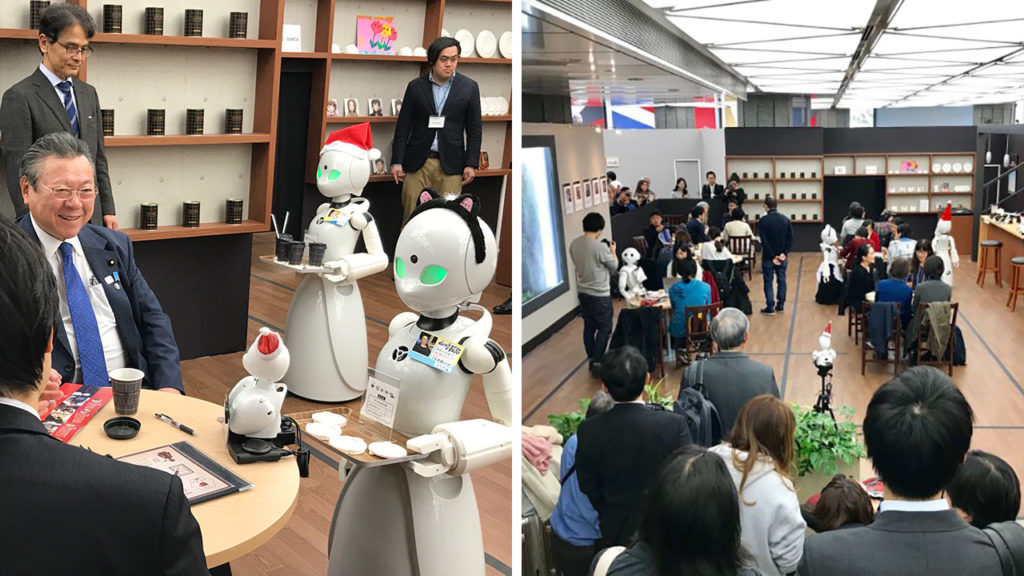We live in a fast-paced world where everyone needs to function at extreme levels of efficiency. And due to the rising corporatism, there is a sense of inhumanity that is settling in as employees are expected to be in perfect working condition while joining a job. However, a cafe in Japan is looking out for those who are disabled and giving them means to earn a living.
According to BBC, a cafe had opened in Tokyo, Japan that employed paralysed people to control robot waiters remotely.
最終日は手の動きが豊かになってきました。みんなが見守るなか、バンザイポーズ!!#分身ロボットカフェ #avatarcafe pic.twitter.com/iotl1wngQ2
— 日本財団 (@NipponZaidan) December 7, 2018
とても同じ場所には思えない、before/after
また何かイノベーティブな実験が行われないかなぁ。#分身ロボットカフェ#AVATARCAFE pic.twitter.com/xfvUGhNYeC— 日本財団 (@NipponZaidan) December 10, 2018
With a total of 10 people remotely controlling robots, the Dawn Ver cafe had opened for a total of two weeks to test the programme. The robot’s controllers earned 1000 yen (around Rs. 630) per hour – which is the standard rate of pay for waiters in Japan.
The Dawn Ver cafe is populated by OriHime-D robots, which are developed by a Japanese start-up company called Ory. The project is backed by the NPO Nippon Foundation and the airline ANA.
The robots are programmed to move, observe, talk to customers and carry objects, even if their human operator is paralysed due to spinal injuries or progressive neurodegenerative disease ALS.
While the project aims to test connections between disabled people and the robots, it’s also paving the way for otherwise housebound people to earn minimum wage, thereby giving them more independence.
CNET says that the cafe is designed to look like the fictional cafe from the 2008 sci-fi anime series Time of Eve. Why? Because the Time of Eve series tell the story of humans and androids treating each other as equals inside an unique cafe.
昨日は、櫻田義孝大臣(東京オリンピック競技大会・東京パラリンピック競技大会担当)が分身ロボットカフェDAWNに来店しました! ロボットを通じて自宅にいるパイロットと会話して楽しそう!
#分身ロボットカフェ #AVATARCAFE pic.twitter.com/0ZFXRrOG6G— 日本財団 (@NipponZaidan) December 7, 2018
閉店日、最後の入場!
おつかれ様でした☕️また、すぐに❣️#分身ロボットカフェ#AVATARCAFE pic.twitter.com/qWNiqYwmmX— ほしかよ (@yokayon6) December 7, 2018
As mentioned before, the cafe was opened for two weeks and is now closed. However, if its creators are able to raise enough money via a crowdfunding campaign, a permanent Dawn Ver cafe will be inaugurated in 2020.
It’s quite heartening to see that a group of corporate companies are looking out for people who aren’t able to move freely or interact with people for no fault of their own. Let’s hope more and more organisations around the world take up initiatives like this, instead of just allowing quotas and then looking the other way.
